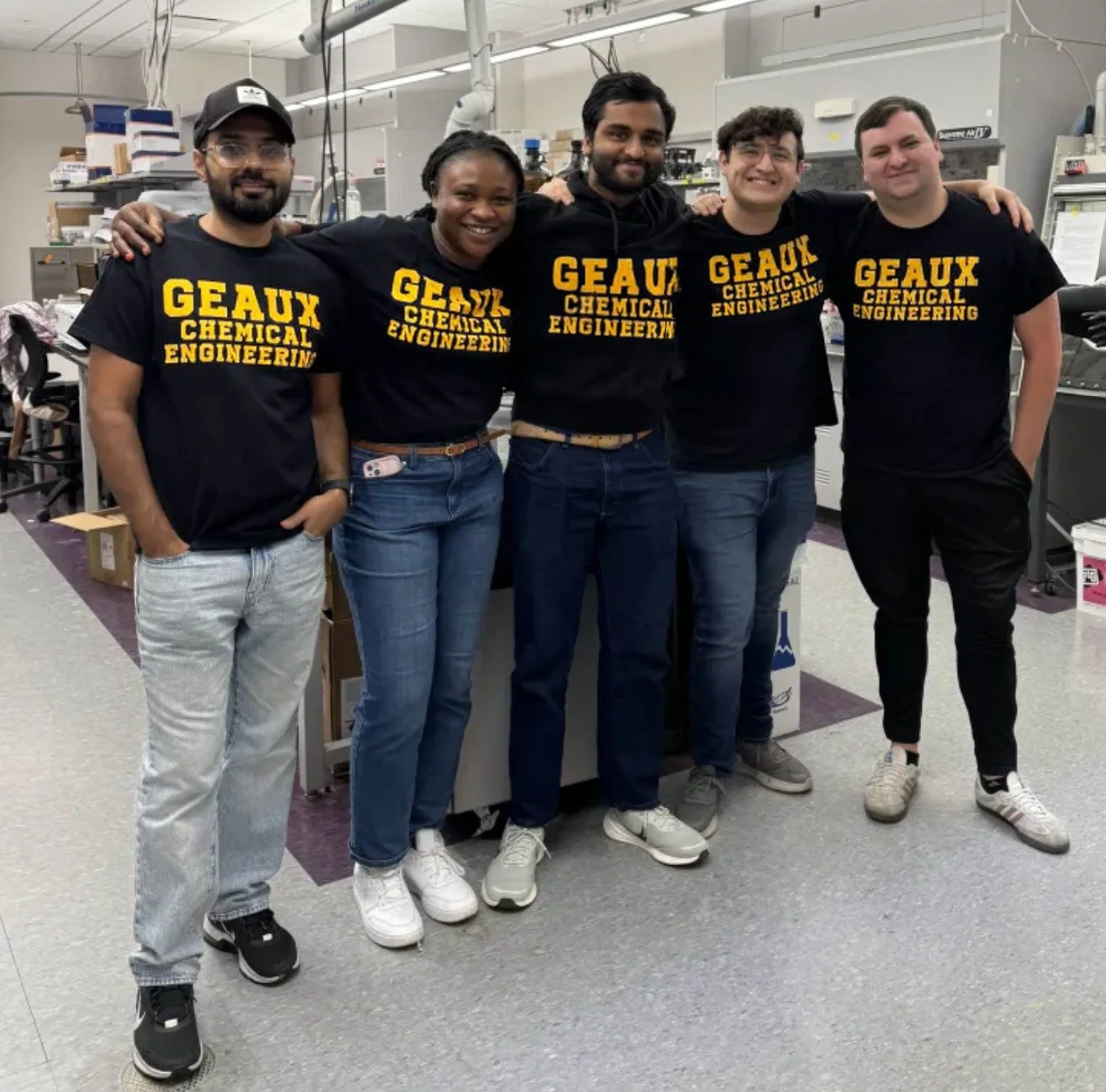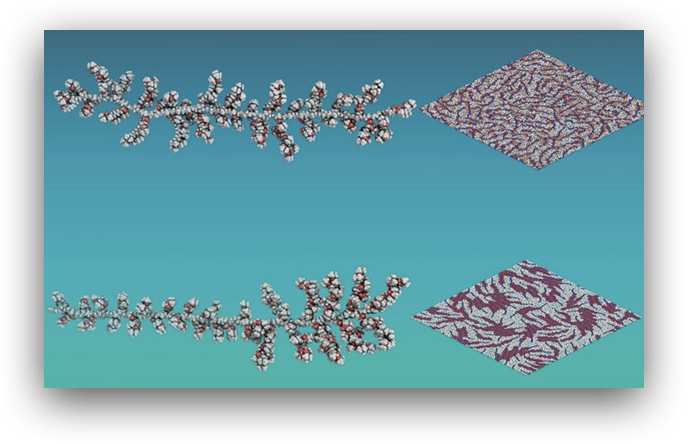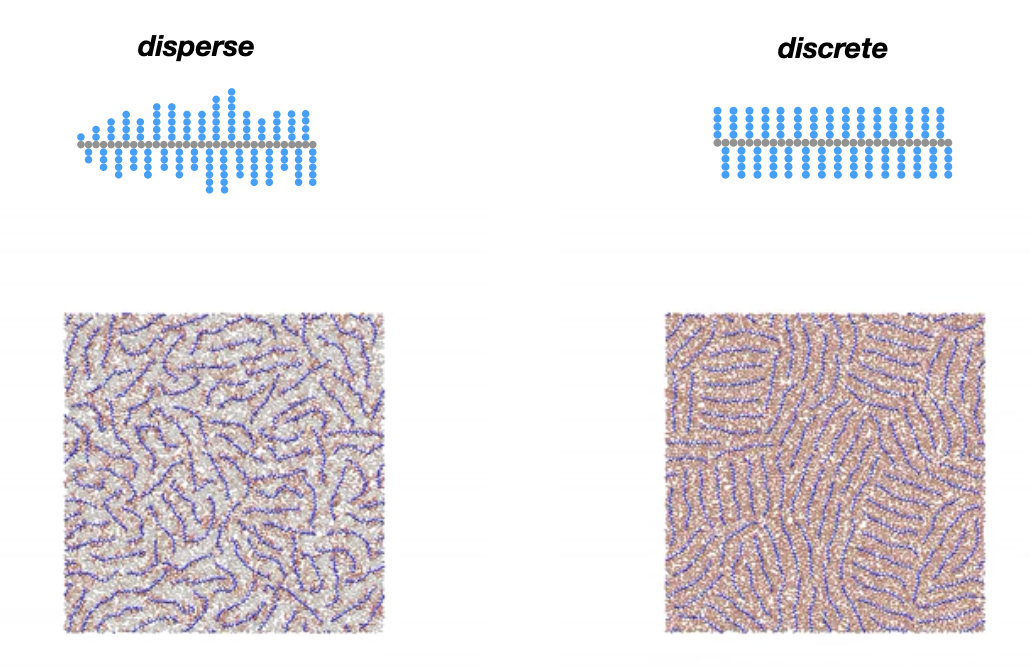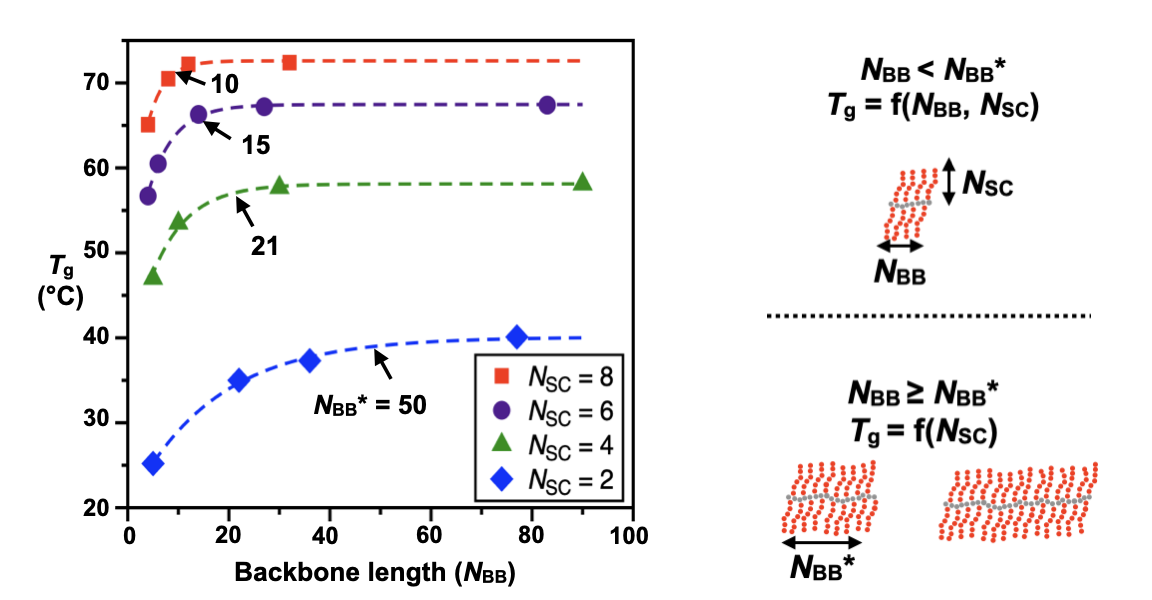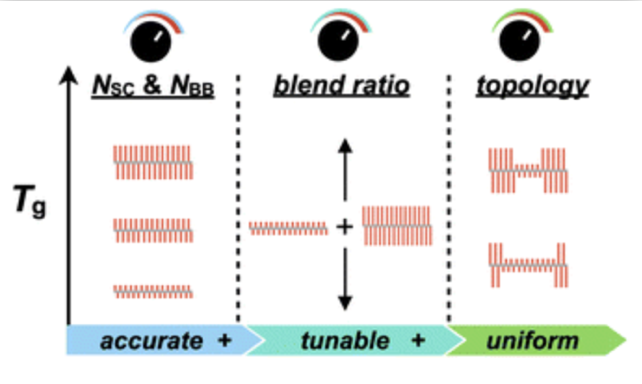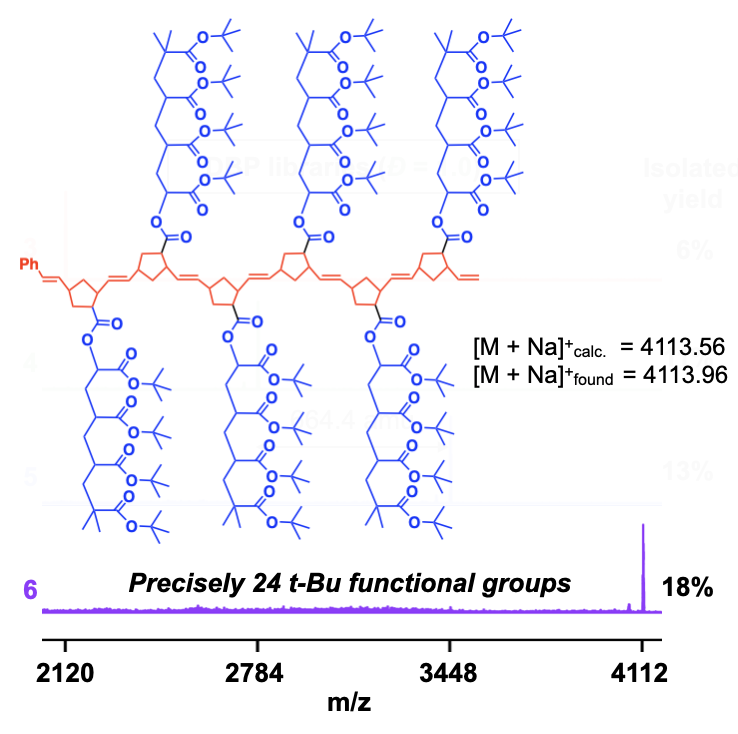About Our Group
Advancing the frontier of materials science with precision polymer engineering to create multifunctional and sustainable materials.
Our group focuses on advancing the understanding and control of synthetic polymers and nanoscale materials by synthesizing them from discrete polymeric building blocks.
Our work is anchored by three key missions:
The creation of molecularly precise polymeric building blocks.
The elucidation of structure–property relationships of complex polymers.
The design of multifunctional biomaterials and nanomaterials for advanced engineering and biomedical applications.
Research Projects
Topologically Precise and Discrete Bottlebrush Polymers
Without controlling side-chain dispersity, the permutation of side-chain arrangements in conventional BBPs imposes a significant challenge for understanding their structure–property relationships. Our research focuses on using discrete (Đ = 1.0) building blocks to synthesize and characterize topologically precise and discrete bottlebrush polymers.
Check out our recent publications for more information.
Multifunctional Biomaterials and Contrast Agents
Although incorporating more fluorine groups is often assumed to enhance MRI sensitivity, excessive fluorination can reduce performance by affecting solubility, mobility, and relaxation properties. Our work demonstrates that precise molecular design, rather than simple fluorine content, is key to creating effective multifunctional biomaterials and contrast agents.
Templated Synthesis and Automated Separation
Achieving molecular precision in polymer synthesis requires both controlled assembly and rigorous purification. Our research integrates templated synthetic strategies with automated separation methods, including recycling chromatography, to isolate discrete polymers with exact chain lengths and architectures for fundamental studies.
Polymeric Surfactants, Additives, and Surface Modifiers for Environmental and Biomedical Applications
Conventional polymeric additives often suffer from inconsistent distribution and unpredictable interfacial behavior. Our work employs topologically precise bottlebrush polymers as surfactants and surface modifiers to achieve controlled interfacial interactions, enhancing stability and functionality in both environmental and biomedical contexts.
Tunable Nanoparticles
Conventional mixed-ligand strategies often result in uncontrolled surface composition, making it difficult to isolate ligand-specific effects. Our research focuses on using bifunctional discrete ligands to achieve precise 50:50 surface compositions, enabling systematic study of amphiphilic and hydrophobic balance in nanoparticle functionalization.
News
10/30/2025 – Dr. Michael Dearman successfully defended his Ph.D. thesis. Congratulations!
08/20/2025 – Dr. Lawrence received the 2025 PMSE Early Investigator Award from the American Chemical Society’s Division of Polymeric Materials: Science and Engineering (PMSE) at the ACS National Meeting.
05/01/2025 – The Lawrence Lab publishes a paper in JACS “Discrete Brush Polymers Enhance 19F MRI Performance through Architectural Precision”. The study shows that architectural precision enhances signal and sensitivity while requiring less fluorine content.
03/23/2025 – Dr. Lawrence, Michael Dearman, Titilayo Oluwole, and Alejandro Ramirez attended and presented their research at the Spring 2025 ACS Conference.
03/21/2025 – The Lawrence Lab welcomes its new first-year Ph.D. student, Hariharan Jayakumar.
12/07/2024 – Dr. Parikshit Guragain and Titilayo Oluwole attended and presented their research at GCP 2024.
10/27/2024 – Dr. Lawrence, Nduka D. Ogbonna, and Titilayo Oluwole attended and presented their research at the Fall 2024 AIChE Conference.
09/16/2024 – Dr. Nduka D. Ogbonna successfully defended his Ph.D. thesis. Congratulations!
07/01/2024 – The Lawrence Lab welcomes its new postdoc, Dr. Parikshit Guragain.
06/05/2024 – The Lawrence Lab welcomes its new undergraduate student, Tharushi Weerakoon.
05/05/2024 – The Lawrence Lab welcomes its new first-year Ph.D. student, Alejandro Ramirez.
04/23/2024 – Dr. Lawrence received the LSU Alumni Association Rising Faculty Research Award.
12/20/2023 – We are honored to receive the NSF CAREER Award from the NSF Division of Materials Research, Polymer Program.
12/18/2023 – Our high school intern, Louisa Zhu (BR Magnet HS), has been accepted into MIT. Congratulations!
08/03/2023 – Michael Dearman passed his Ph.D. exam. Congratulations!
07/14/2023 – We are thrilled to announce that our group has been granted the prestigious NIH ESI MIRA (R35) award.
01/31/2023 – “Versatile strategies to tailor the glass transition temperatures of bottlebrush polymers” in Polymer Chemistry is featured as Editor’s Choice.
12/01/2022 – Michael Dearman successfully defended his Master’s thesis.
11/13/2022 – Dr. Lawrence, Nduka D. Ogbonna, and Michael Dearman attended the Fall 2022 AIChE Conference.
11/09/2022 – The Lawrence Lab welcomes its new first-year Ph.D. student, Titilayo Oluwole.
11/09/2022 – Nduka D. Ogbonna and Michael Dearman attended and presented their research at APTEC 2022.
09/22/2022 – Congratulations to Nduka D. Ogbonna for successfully passing his General Exam.
08/03/2022 – The Lawrence Lab publishes a paper in Polymer Chemistry on tailoring the glass transition temperature (Tg) of bottlebrush polymers. The study highlights critical backbone and side-chain parameters that allow Tg variation without changing chemical composition.
03/18/2022 – The Lawrence Lab publishes a paper in JACS Au on length-dependent kinetics of bottlebrush macromonomers. The study shows how macromonomer dispersity affects polymerization and reports the first fully discrete bottlebrush polymer libraries.

